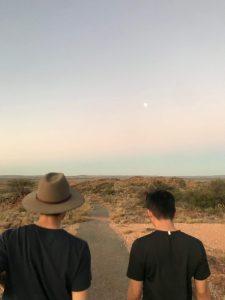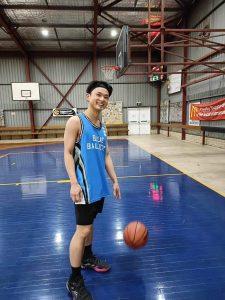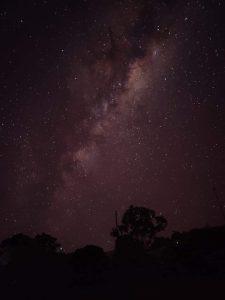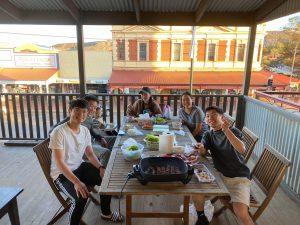1:30min
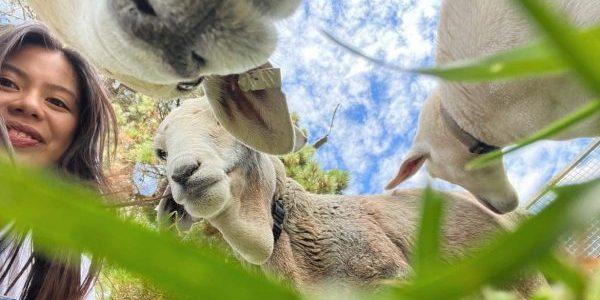 Three early career optometrists, Ryan Seong, Rhonda Ton and Andrew Yue, talk to Chair of ECONA’s Regional and Rural engagement committee, Lynn Qian, about moving from university to rural or regional practice in Broken Hill, Canberra and Wagga Wagga.
Three early career optometrists, Ryan Seong, Rhonda Ton and Andrew Yue, talk to Chair of ECONA’s Regional and Rural engagement committee, Lynn Qian, about moving from university to rural or regional practice in Broken Hill, Canberra and Wagga Wagga.
Lynn Q: Had you done a regional/rural placement prior to your move? And if so, how did that influence your decision on where you sought work? Is there anything else that you felt university could’ve better prepared you for?
Ryan S: My regional placements were unfortunately cancelled due to the pandemic. I think this actually made me more curious about optometry and lifestyle in regional and rural settings. I thought I should give it a go! I think the School of Optometry and Vision Science did the best they possibly could to prepare me for optometry life, given that my final two years were COVID years.
Andrew Y: During my final year at university, I completed three months of placement in Broken Hill followed by a further three months in Dubbo. Working regionally during placements gave me a taste of both the lifestyle and work. I always knew I wanted to work regionally, and the placements helped me understand my own priorities in what I looked for in a workplace. Prior to these two blocks, I had done other placements, but none longer than a day in duration. It would have been helpful to have some shorter-term rural placements to help prepare for the demands of living regionally, beyond work alone.
Rhonda T: During my fourth year of university, I elected to do my regional placements in Smithfield, Cairns. (I wanted a placement that could also double as a holiday!) The placement allowed me to gain clinical skills on the weekdays and explore the Great Barrier Reef on the weekends. Whilst working as a new-grad optometrist, I came to Canberra in two-weekly blocks to assist multiple optometry practices as a relief optometrist. These small glimpses into life outside of Sydney helped me in my decision-making. The regional placements tend to be in the 4th year of university at UNSW. It would be ideal if regional and rural clinics with vacant positions could host placement students before graduation and the commencement of work.
Lynn Q: How was your move? How did you get there? How did you find accommodation and furniture?
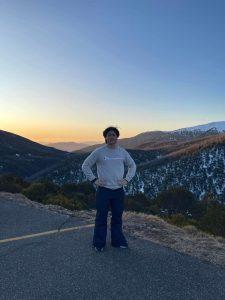 Andrew Y: Having moved multiple times during my university studies, both down to Victoria and back to NSW for my placements, I learnt to pack only the essentials, or as much as would fit into a car. Finding accommodation proved to be a challenge as rentals were difficult to find at an affordable price, typically required previous rental history, and were difficult to inspect due to travel constraints. Similarly, websites such as Flatmates offered short term solutions, however faced similar issues. I was fortunate enough to have my employer subsidise two weeks of accommodation after starting full-time work, which was very helpful in being able to do an in-person inspection of any prospective properties. After finding a place to settle into, Facebook Marketplace became the go to for any required appliances and other pieces of furniture for a significantly discounted price.
Andrew Y: Having moved multiple times during my university studies, both down to Victoria and back to NSW for my placements, I learnt to pack only the essentials, or as much as would fit into a car. Finding accommodation proved to be a challenge as rentals were difficult to find at an affordable price, typically required previous rental history, and were difficult to inspect due to travel constraints. Similarly, websites such as Flatmates offered short term solutions, however faced similar issues. I was fortunate enough to have my employer subsidise two weeks of accommodation after starting full-time work, which was very helpful in being able to do an in-person inspection of any prospective properties. After finding a place to settle into, Facebook Marketplace became the go to for any required appliances and other pieces of furniture for a significantly discounted price.
Ryan S: The move was made easy thanks to the help of my family. I flew to Broken Hill first and my family drove my car up with my belongings a couple of days later. Accommodation and furniture were all provided by my employer as part of the contract.
Rhonda T: Moving was easy as it was my first move out of the family home. I didn’t have many things and I kept things minimal. I drove myself and two large-sized suitcases down to Canberra. It took a lot of work to find a rental because Canberra is quite popular with graduates moving down for Australian Public Service positions. Initially, I found accommodation through LivComfy which offered furnished apartments.
Lynn Q: Did you move by yourself or with family/friends? If by yourself, how did you cope with isolation from your friends and family? How did you manage your professional isolation?
Rhonda T: When I decided to move, my brother had already been living in Canberra for the past few years, so I had him to annoy! Initially, I moved into a share house with other ANU students, so they would invite me out to their events. I didn’t feel isolated Canberra at all. There are many optometrists in Canberra and Sydney was just a few hours’ drive away.
Ryan S: I moved by myself. I made a conscious effort to keep in touch via messaging and video calls with my friends and family, and still do, to this day. I’m lucky to have friends who also make an effort to stay in touch with me, so overall I didn’t feel too isolated. Professional isolation was not really an issue as Broken Hill is a small town with only three optometrists, so it was quite easy to connect with one another.
Andrew Y: Initially after graduating, I spent four months working in Wagga Wagga before moving down to Albury-Wodonga to work in a closer proximity to my friends. I found it much more enjoyable being able to come home and spend time with friends and reflect on the patients we’d seen, and I would highly recommend moving with someone you already know. Professional isolation is definitely something I struggled with initially. However, moving in with housemates is a great way to meet new people and keep the weekends busy.
Lynn Q: What have you found helpful in settling in within your community? (e.g. Linking up with other young health professionals, joining local sporting groups)
Ryan S: I met up with other optometrists and health professionals in town, who are also in a similar situation to me. We’re now good friends and spend lots of time outside of work together. This definitely helped me to settle in. I also joined a basketball team and the gym, which allows me to socialise more.
Andrew Y: Settling into a new place is very difficult, and I have found joining some sort of active community to be helpful, whether it be a gym or sporting club. There is a very strong sense of community within Albury-Wodonga and with it, numerous opportunities to get involved. Some of my colleagues have joined dragon boat racing teams, while others have joined padel leagues. I’m fortunate enough to work in a location where there are numerous early career optometrists, and being able to spend time with them to unwind has been something I look forward to on weekends.
Rhonda T: Moving to a new city can be quite isolating. I found that being approachable and open to new friendships helped me. I joined ClassPass which allowed me access to all the different fitness centres where I could meet the locals. There are online platforms in Canberra with social meetups such as Canberra Socials and Social Girls of Canberra which was also a fantastic way to meet other newcomers and locals.
Lynn Q: Was lack of entertainment and leisure activities an issue for you? If so, how did you cope?
Ryan S: It wasn’t an issue for me, as I quickly realised that I had a lot of time on my hands before and after work since I don’t have to travel far for work. I used this time for my hobbies and to discover new interests too. I also spend a lot of time with my Broken Hill friends.
Andrew Y: Lack of entertainment was never an issue. Albury-Wodonga is very well placed, with numerous smaller towns within a two-hour radius, such as Beechworth, Bright, and Mount Beauty. There are numerous walking tracks, wineries, and always something new to explore. If you like the snow, like I do, Falls Creek is only one and a half hours away, making it very accessible for a day trip during winter months.
Rhonda T: There are plenty of things to do in Canberra. Canberrans are big on hobbies and the outdoors. So far, I’ve signed up to running, yoga and reformer Pilates. It gets quite cold here, so the sauna is popular too. I have yet to attempt trail running, but it is also popular in Canberra.
Lynn Q: Do you have onerous travel requirements for work?
Andrew Y: Paradoxically, working regionally has greatly reduced my travel requirements, with work typically only a ten-minute drive away. A traffic jam will set you back at most five extra minutes of travel.
Rhonda T: Work is a ten-minute walk away. You can walk to most places in Canberra within twenty minutes.
Ryan S: I walk downstairs to work, so I’d have to answer ‘no’ to that one!
Lynn Q: What other challenges have you faced moving to regional NSW / Canberra?
Ryan S: There’s definitely a lack of ophthalmologists in the area. In Broken Hill, there’s no permanent ophthalmologist. We only have a registrar who is here three out of every four weeks, meaning one week per month, there’s no ophthalmology cover. Any ocular emergency that walked in during these weeks was a challenge but also helped me to learn things very quickly. In terms of more personal challenges, I miss the variety of food I can get in Sydney! And, if I’m honest, I still miss my friends and family in Sydney. It is hard to see them often due to the distance between Broken Hill and Sydney. I get my weekends off but it can get quite tiring travelling back and forth between Broken Hill and Sydney in such a short time. Although I am fortunate enough to have a few of my return flights reimbursed, the regional flights are quite expensive so it is not really viable to fly back too often.
Andrew Y: In terms of practice, the biggest challenge I have faced is the more holistic approach required when working with patients. Some drive hours for a single appointment, meaning follow-up consultations are difficult to organise and if GP or ophthalmologist care is required, more in-depth investigations need to be done on the same day.
Rhonda T: There aren’t as many CPD events offered in Canberra compared to Sydney. However, nothing is stopping us from holding our own interactive CPD sessions with other local and regional optometrists.
Lynn Q: What are the benefits of living and working rurally in your experience?
Ryan S: In terms of lifestyle, one of the big benefits is having a lot more time outside of work to do whatever you like, as the time to commute to and from work is usually very short. I’d say stress levels are lower, with a more peaceful lifestyle, less traffic, and it’s quieter at night so I find it easier to sleep. I also feel the regional move has fast-tracked me towards developing independence. In terms of working life, my patients are more relaxed and easy-going in general. There’s lots of experience to be gained, as I co-manage with ophthalmologists frequently, particularly in the weeks when there is no ophthalmologist/registrar in town. Salary is also higher in rural and regional areas.
Andrew Y: The biggest professional benefit of working rurally is the variety of patients seen on a daily basis, with a great mix of therapeutic, emergencies, and regular check-ups. Often we have patients with foreign bodies requiring removal which are a fun break from routine examinations. Being able to provide personalised, patient-centred care and address their concerns is very rewarding. On a more personal level, living regionally, I appreciate the flexibility in work hours, not having to do most weekend days and being able to spend time with friends more easily.
Rhonda T: Moving to a regional city offered me better working conditions. I enjoy being able to have meaningful conversations with patients and gain a better understanding of individual needs to be able to provide personalised care. As the area where I work is a close-knit community, word-of-mouth referrals have enabled me to build a loyal patient base. The most rewarding part of work is being the optometrist to three generations of patients. On a professional level, the smaller community has allowed me to work closely and more effectively with local ophthalmologists.
Thinking of a tree change in rural and regional NSW and not sure how to refer patients? Check out our Referral Guide https://www.optometry.org.au/about-us/our-organisation/optometry-nsw-act/our-referral-resources/ – available to all Optometry Australia members. OA membership is FREE for students and for the first 6 months after graduation. Tap into all the support available at the start of your optometry journey.
About the authors
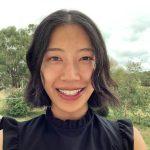 Lynn Qian graduated from the University of Melbourne in 2020. Looking for a tree change she moved to regional New South Wales (Orange) for her graduate year at a corporate optometry practice. Since 2023 she has worked at both an independent optometry and a local ophthalmology practice in Mudgee. She is Chair of the Rural and Regional Engagement Committee of ECONA, Optometry NSW/ACT’s early career optometrist engagement committee.
Lynn Qian graduated from the University of Melbourne in 2020. Looking for a tree change she moved to regional New South Wales (Orange) for her graduate year at a corporate optometry practice. Since 2023 she has worked at both an independent optometry and a local ophthalmology practice in Mudgee. She is Chair of the Rural and Regional Engagement Committee of ECONA, Optometry NSW/ACT’s early career optometrist engagement committee.
 Ryan Seong graduated from the University of New South Wales in 2021 and went straight in the deep end, signing up for his first full-time job in the regional town of Broken Hill. Moving regionally for work has allowed him to see a wider range of unique cases which may not have been available in metro Sydney. In his spare time, he likes to watch movies, spend time with friends and play sports, such as basketball. He joined Optometry NSW/ACT’s Early Career Optometrists (ECONA) Rural and Regional Engagement Committee in 2023.
Ryan Seong graduated from the University of New South Wales in 2021 and went straight in the deep end, signing up for his first full-time job in the regional town of Broken Hill. Moving regionally for work has allowed him to see a wider range of unique cases which may not have been available in metro Sydney. In his spare time, he likes to watch movies, spend time with friends and play sports, such as basketball. He joined Optometry NSW/ACT’s Early Career Optometrists (ECONA) Rural and Regional Engagement Committee in 2023.
 Rhonda Ton completed her studies at UNSW in 2018 and joined a corporate practice in metropolitan Sydney for her first 3 years of practice. In 2021 she changed to a hybrid work model, combining metropolitan Sydney practice with regional relief work. She relocated to Canberra at the end of 2022, allowing her to pursue her interests in both public health advocacy and optometry. Rhonda recently transitioned into a public health role while continuing optometry practice through locum work. She joined Optometry NSW/ACT’s Early Career Optometrists (ECONA) Rural and Regional Engagement Committee in 2023.
Rhonda Ton completed her studies at UNSW in 2018 and joined a corporate practice in metropolitan Sydney for her first 3 years of practice. In 2021 she changed to a hybrid work model, combining metropolitan Sydney practice with regional relief work. She relocated to Canberra at the end of 2022, allowing her to pursue her interests in both public health advocacy and optometry. Rhonda recently transitioned into a public health role while continuing optometry practice through locum work. She joined Optometry NSW/ACT’s Early Career Optometrists (ECONA) Rural and Regional Engagement Committee in 2023.
 Andrew Yue graduated in optometry from Deakin University in 2022 and made the move to regional NSW as a new graduate. He is passionate about working with people, and regional optometry has allowed him to provide a holistic level of care to the community while working closely with like-minded and eager healthcare professionals. In his spare time he enjoys visiting local towns, going to the gym and snow, and bothering his 1-year-old cat from her naps. He joined Optometry NSW/ACT’s Early Career Optometrists (ECONA) Rural and Regional Engagement Committee in 2023.
Andrew Yue graduated in optometry from Deakin University in 2022 and made the move to regional NSW as a new graduate. He is passionate about working with people, and regional optometry has allowed him to provide a holistic level of care to the community while working closely with like-minded and eager healthcare professionals. In his spare time he enjoys visiting local towns, going to the gym and snow, and bothering his 1-year-old cat from her naps. He joined Optometry NSW/ACT’s Early Career Optometrists (ECONA) Rural and Regional Engagement Committee in 2023.
